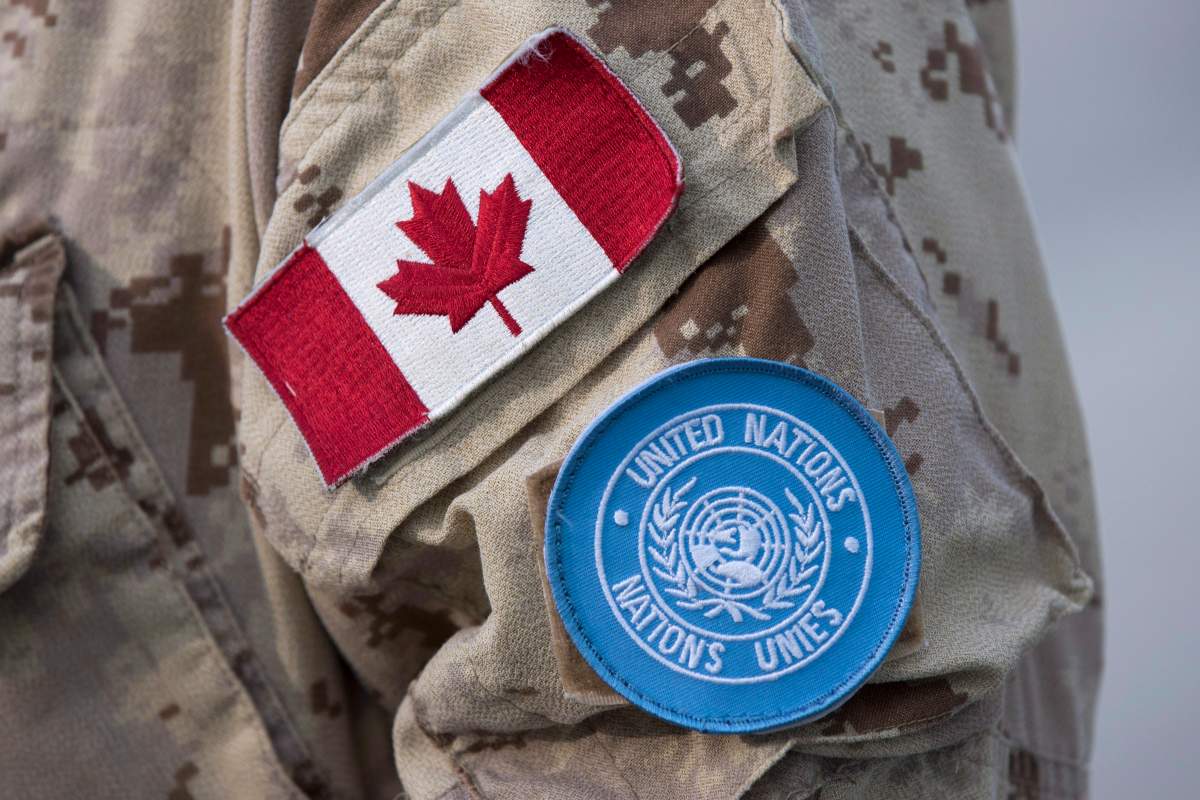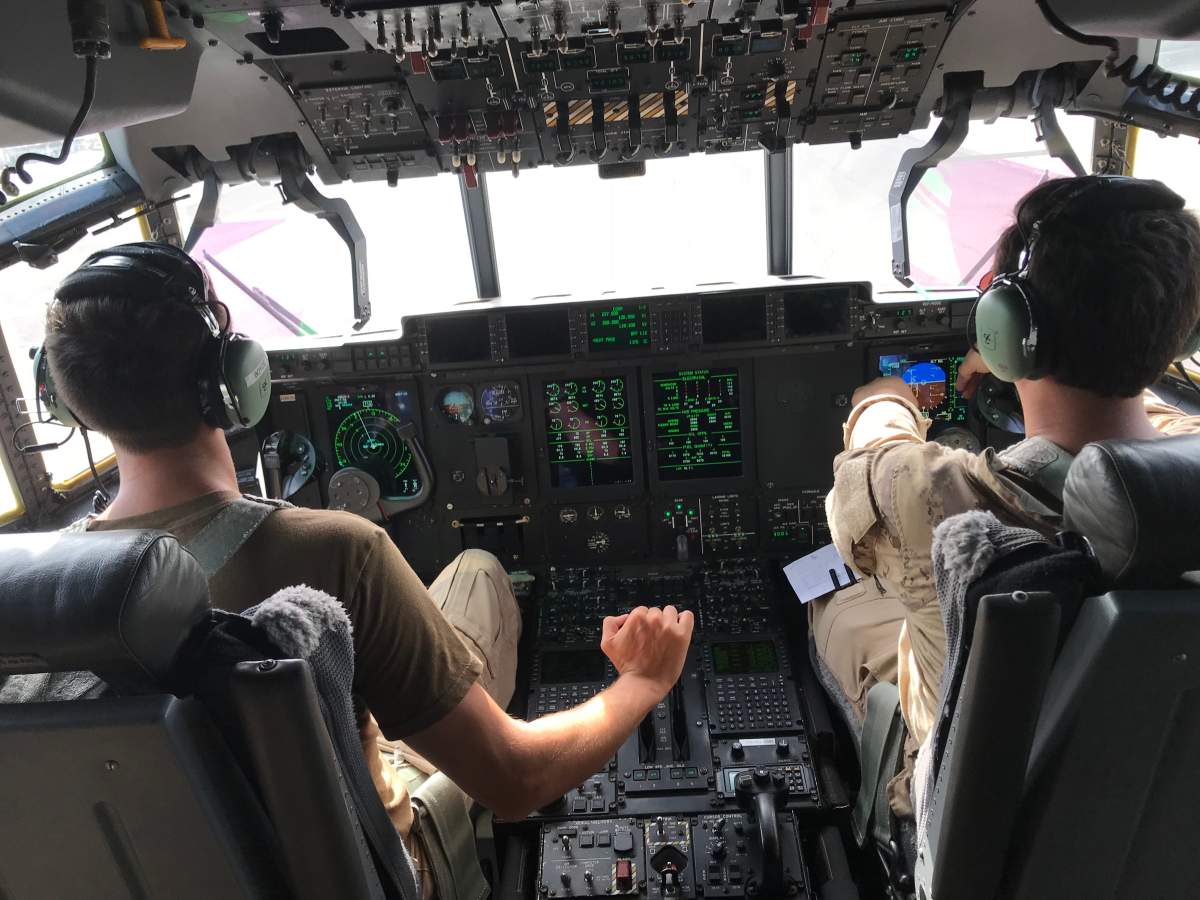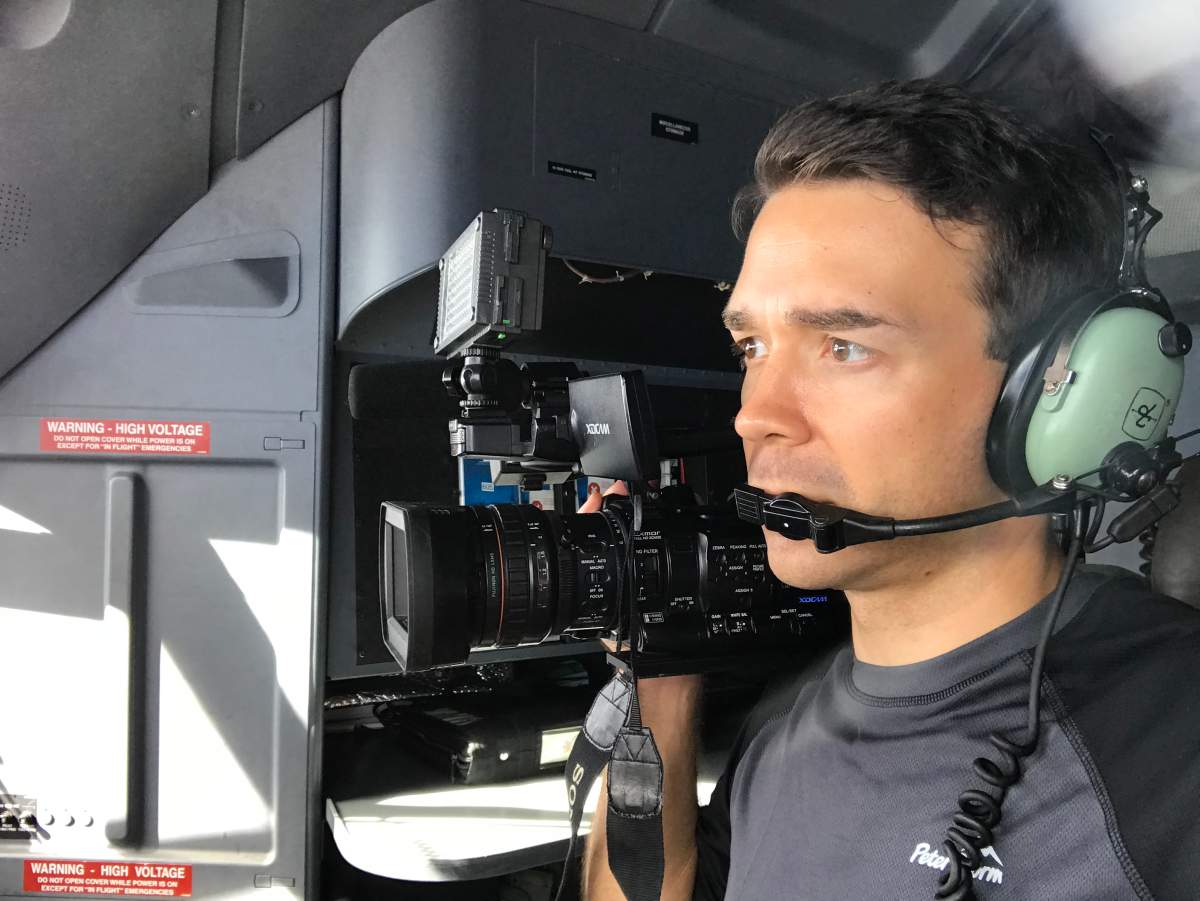As I checked into my hotel in Dakar, Senegal, the receptionist asked for my passport. She looked at the cover and laughed: “Another Canadian!” she said. “We’ve had so many Canadians.”

Over the past few months, around 250 members of the Canadian Armed Forces have arrived in Senegal, en route to Mali. You can spot the Canadians from afar, of course, by the Maple Leaf patch on their shoulders. But on this trip, they’re also wearing blue.
Mali represents Canada’s first large-scale United Nations peacekeeping mission in nearly two decades. And many of the Canadians I’ve met at their new home base, Camp Castor in northern Mali, seem genuinely excited about that.
WATCH: Troops should be proud of Mali peacekeeping mission, commander says

The Senegalese capital is Canada’s doorway to Mali for a few reasons. Senegal has a reputation for being one of the few stable democracies in West Africa.
And, importantly for the Canadians, it also happens to have airport runway to spare. In December, Senegal opened a shiny new international airport and the government gave the previous airport to the Senegalese military.
Three months later, the Canadian government announced it planned to contribute several large military aircraft to the UN mission in Mali. And in next-door Senegal, Canada found its launching pad.
I hitched a ride from Dakar to Mali aboard a CC-130J Hercules turboprop aircraft, which can carry up to 92 combat troops or 128 non-combat passengers.

Get daily National news
Hercules has been doing a lot of heavy-lifting over the past few months, transporting Canadian troops and supplies into Mali.
But those Canadians have now arrived and the mission is fully operational. Canada’s primary job is to provide air medical support and evacuations for both civilians and our partners, in what has become the most dangerous UN operation in the world.
At least 170 peacekeepers have been killed in Mali since the mission began in 2013, at the hands of a number of different rebel and jihadist groups.
Besides the inherent danger, Canadian troops are also battling scorching temperatures, thunderstorms and sandstorms. And yet, the mood at the camp is remarkably upbeat.
The Canadians have just moved in alongside their German and Dutch counterparts. After sunset, dozens of them gathered outside together to play a game of Bingo and drink non-alcoholic German beer (affectionately known as “near beer”).
As a journalist reporting from a military base, whether in Erbil, Iraq, or Petawawa, Ont., you quickly get used to the many rules and restrictions regarding what you’re allowed to photograph and who you’re allowed to interview (suffice to say, it’s usually faster to list the things you *can* do).
And when you find someone whom you *are* allowed to interview, the challenge is then to get that person to abandon the sometimes robotic military jargon and tell you what they actually think, or how they’re really feeling and why they personally wanted to take part in this mission.
It can be a tough nut to crack.
My first impression of Canada’s mission to Mali, however, is markedly different. There is a genuine and candid openness and enthusiasm about this mission.
Rather than refusing to be interviewed when asked by a journalist, Canadian troops here in Mali are volunteering to talk about why they’re here and what they’re doing.
WATCH: Canadian troops leave for Mali peacekeeping mission

Some of that enthusiasm, particularly from high-ranking officers, may stem from a desire to “sell” the one-year mission to Canadians.
But it’s also due, at least in part, to the fact that many of these troops — including those who’ve served in Afghanistan, Iraq and Eastern Europe — are taking part in their first United Nations peacekeeping operation.
- ‘At first I cried’: How Iranian Canadians are reacting to the U.S. strikes in Iran
- Khamenei’s death met with ‘jubilation’ among Iranian-Canadians: Liberal MP
- Iran begins search for new leader; U.S. military says 3 service members killed
- Queen’s University students stranded in Doha after Iran attack shuts down airspace












Comments
Want to discuss? Please read our Commenting Policy first.